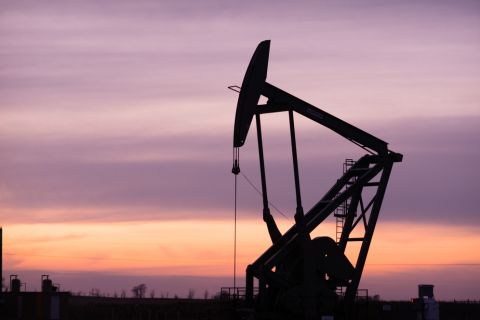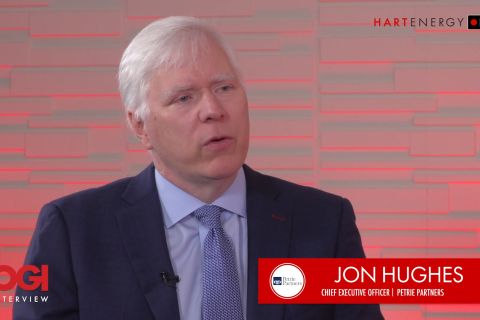Demand for hydraulic fracturing equipment is quickly outpacing supply, executives said this week, setting the stage for a new obstacle to U.S. oil and gas production growth.
Oil companies have been under pressure from the Biden administration to lift production to curb high energy prices. Some companies, particularly private firms, also want to boost output to capitalize on oil's surge to $100 a barrel. However, in order to boost output, equipment and crews are needed.
"Availability of frac fleets is one of main bottlenecks impeding oil and natural as production growth for the next 18 months," Robert Drummond, CEO of fracking firm NexTier Oilfield Solutions said on July 27.
U.S. crude production is expected to average 11.9 MMbbl/d in 2022, below the pre-pandemic record of 12.3 MMbbl/d in 2019, according to the U.S. Energy Information Administration.
Drummond warned that capital constraints and supply chain snarls will make it difficult to add equipment and said it could take several years to correct the imbalance in the market.
NexTier will not deploy any additional fracking capacity this year, he added.
"We definitely see frac crew bottlenecks as a significant headwind for U.S. producers headed into 2023," said Matt Hagerty, a senior analyst at BTU Analytics, a Factset Company, citing a "perfect storm" of frac sand and labor shortages, inflation, and limited inventory of fleets that can be reactivated after going idle in 2020.
Rivals Halliburton and Liberty Oilfield Services have warned that the market was near full utilization. Liberty estimated that roughly 250 fleets are running, with about 25 to be added this year. Consultancy Primary Vision Network puts the number higher, at 290 currently operating.
Liberty said pricing in the market had recovered enough to support re-activating some fleets it acquired from Schlumberger , as well as adding two electric fleets in the first quarter of next year.
However Halliburton last week warned that "supply chain bottlenecks, even for diesel fleets, make it almost impossible to add incremental capacity this year" and that experienced crews are in high demand.
Recommended Reading
Hess Corp. Boosts Bakken Output, Drilling Ahead of Chevron Merger
2024-01-31 - Hess Corp. increased its drilling activity and output from the Bakken play of North Dakota during the fourth quarter, the E&P reported in its latest earnings.
The OGInterview: Petrie Partners a Big Deal Among Investment Banks
2024-02-01 - In this OGInterview, Hart Energy's Chris Mathews sat down with Petrie Partners—perhaps not the biggest or flashiest investment bank around, but after over two decades, the firm has been around the block more than most.
Petrie Partners: A Small Wonder
2024-02-01 - Petrie Partners may not be the biggest or flashiest investment bank on the block, but after over two decades, its executives have been around the block more than most.
From Restructuring to Reinvention, Weatherford Upbeat on Upcycle
2024-02-11 - Weatherford CEO Girish Saligram charts course for growth as the company looks to enter the third year of what appears to be a long upcycle.
JMR Services, A-Plus P&A to Merge Companies
2024-03-05 - The combined organization will operate under JMR Services and aims to become the largest pure-play plug and abandonment company in the nation.





